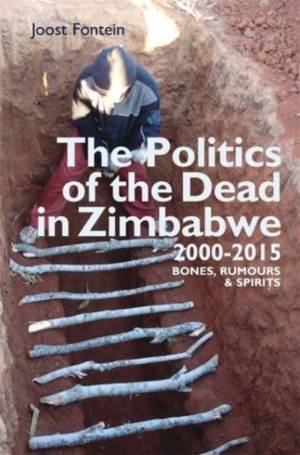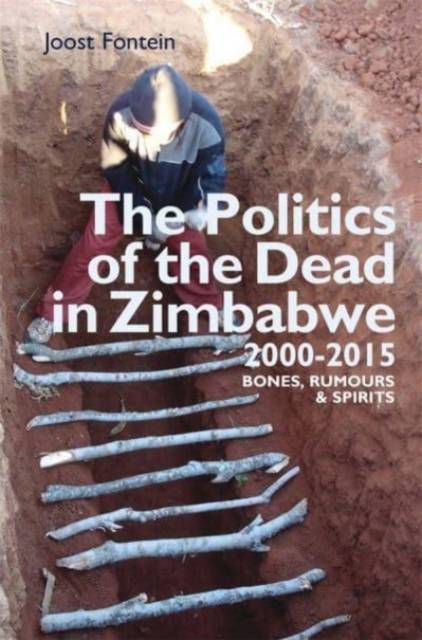
- Retrait gratuit dans votre magasin Club
- 7.000.000 titres dans notre catalogue
- Payer en toute sécurité
- Toujours un magasin près de chez vous
- Retrait gratuit dans votre magasin Club
- 7.000.0000 titres dans notre catalogue
- Payer en toute sécurité
- Toujours un magasin près de chez vous
The Politics of the Dead in Zimbabwe 2000-2020
Bones, Rumours & Spirits
Joost Fontein
Livre relié | Anglais
209,45 €
+ 418 points
Format
Description
In 1898, just before she was hanged for rebelling against colonial rule, Charwe Nyakasikana, spirit medium of the legendary ancestor Ambuya Nehanda, famously prophesised that "my bones will rise again". A century later bones, bodies and human remains have come to occupy an increasingly complex place in Zimbabwe's postcolonial milieu. From ancestral "bones" rising again in the struggle for independence, and later land, to resurfacing bones of unsettled wardead; and from the troubling decaying remains of post-independence gukurahundi massacres to the leaky, tortured bodies of recent election violence, human materials are intertwined in postcolonial politics in ways that go far beyond, yet necessarily implicate, contests over memory, commemoration and the representation of the past. In this book Joost Fontein examines the complexities of human remains in Zimbabwe's 'politics of the dead'. Challenging and innovative, he takes us beyond current scholarship on memory, commemoration and the changing significance of 'traditional' death practices, to examine the political implications of human remains as material substances, as duplicitous rumours, and as returning spirits. Linking the indeterminacy of human substances to the productive but precarious uncertainties of rumours and spirits, the book points to how the incompleteness of death is politically productive and ultimately derives from the problematic, entangled excessivities of human material and immaterial existence, and is deeply intertwined with the stylistics of postcolonial power and politics.
Joost Fontein is Professor of Anthropology, University of Johannesburg. He was previously Director of the British Institute in Eastern Africa and Lecturer in Social Anthropology at the University of Edinburgh. His books include Remaking Mutirikwi: Landscape, Water and Belonging (James Currey, 2015), shortlisted for the African Studies Association 2016 Herskovits Prize.
Joost Fontein is Professor of Anthropology, University of Johannesburg. He was previously Director of the British Institute in Eastern Africa and Lecturer in Social Anthropology at the University of Edinburgh. His books include Remaking Mutirikwi: Landscape, Water and Belonging (James Currey, 2015), shortlisted for the African Studies Association 2016 Herskovits Prize.
Spécifications
Parties prenantes
- Auteur(s) :
- Editeur:
Contenu
- Nombre de pages :
- 366
- Langue:
- Anglais
Caractéristiques
- EAN:
- 9781847012678
- Date de parution :
- 18-03-22
- Format:
- Livre relié
- Format numérique:
- Genaaid
- Dimensions :
- 156 mm x 234 mm
- Poids :
- 680 g

Les avis
Nous publions uniquement les avis qui respectent les conditions requises. Consultez nos conditions pour les avis.






